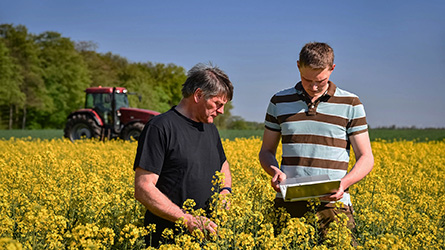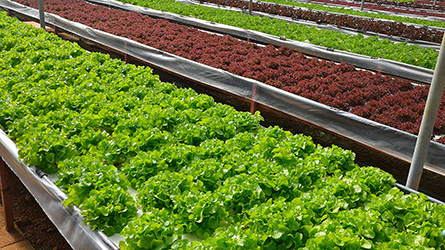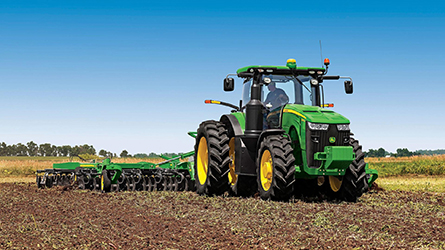Use of natural resources

.svg)
What we do
Using resources sustainably
Food production is not possible without natural resources, such as water or soil. European farmers and agri-cooperatives are the custodians of our countryside and are already doing their share to use natural resources sustainably – and will continue to do so in the future. As a result, the adverse impact of agriculture on the environment has been reduced significantly over the years. Progressing towards climate and environmental targets: European agriculture has made real progress on the climate and environment front, reducing greenhouse gas emissions by 20% and nitrate levels in rivers by 17.7% since 1990. Additionally, around 40% of the land in the Natura 2000 network is, or was once, managed farmland. These areas depend on farmers to continuously manage them. Grazing livestock play an important role in this process too.
Aging rural areas
Today, only 11% of all European farmers are under 40 years of age. For each farmer younger than 35 there are over 5 farmers older than 65 in Europe. This will become even more acute as the largest cohorts of farmers retire during the next terms of the European Parliament and Commission. Farmers and their cooperatives are the bedrock of rural life. They represent and provide a large share of rural jobs and are the enduring thread woven into the social fabric of rural Europe.
What we believe
Committed to our objectives
European farmers and agri-cooperatives will continue to play a positive role in the maintenance of the countryside and the environment. They are committed to finding a balance between environmental, economic and social objectives. However, achieving one objective should not be pursued at the expense or exclusion of the others.
Responding to demands
Agriculture needs to be economically viable, produce enough high-quality food to meet the needs of an increasing global population, and respond to various demands for ecosystem services.

.svg)

.svg)
What we call for
Flexibility in legislation
We call on the European institutions to campaign for and work on environmental legislation that recognises farmers’ efforts and gives them enough flexibility to use resources efficiently, while ensuring food security. Farmers and forest owners need to be able to actively manage their land and engage in more environmentally friendly practices without having to comply with complex legislation or face excessive administrative burdens. This is especially important today, when farmers and foresters are the most directly affected by the negative impact of climate change, and when the area of land used for agricultural purposes in the EU is continuing to fall as a result of increasing urbanisation in Europe.



.svg)